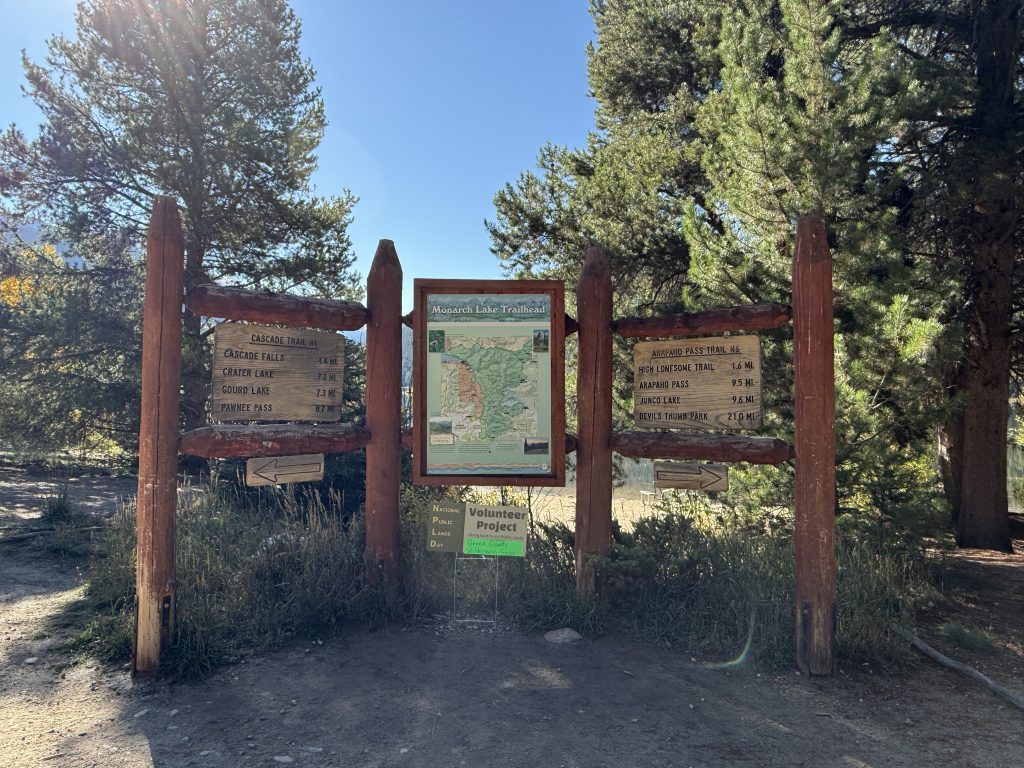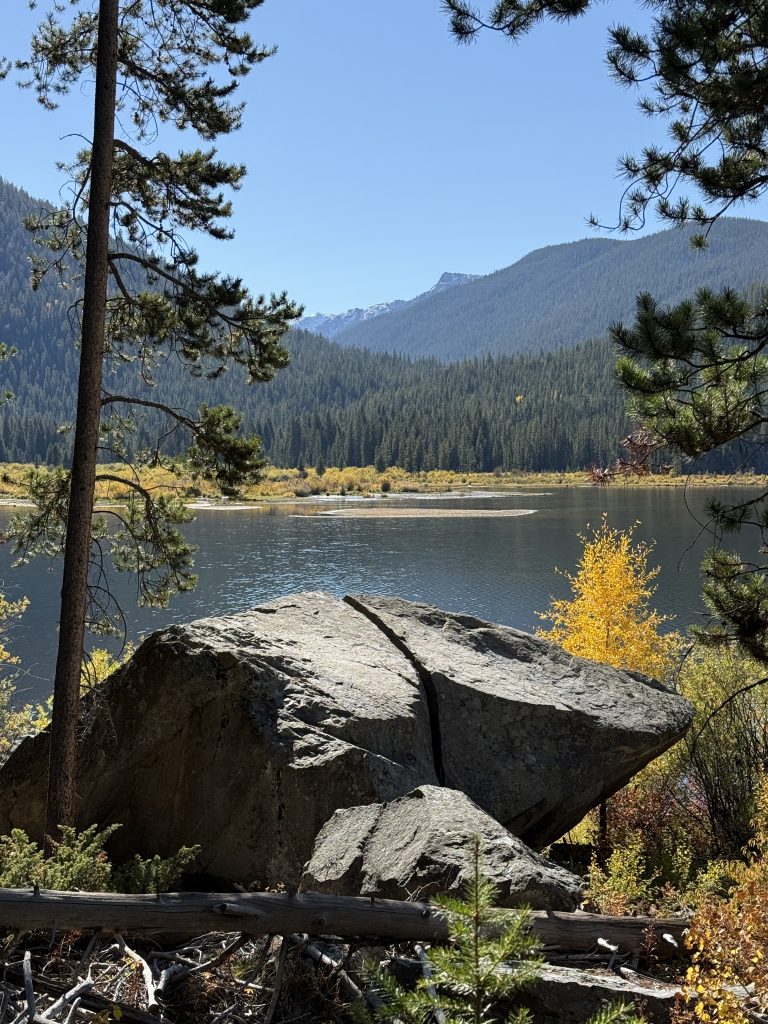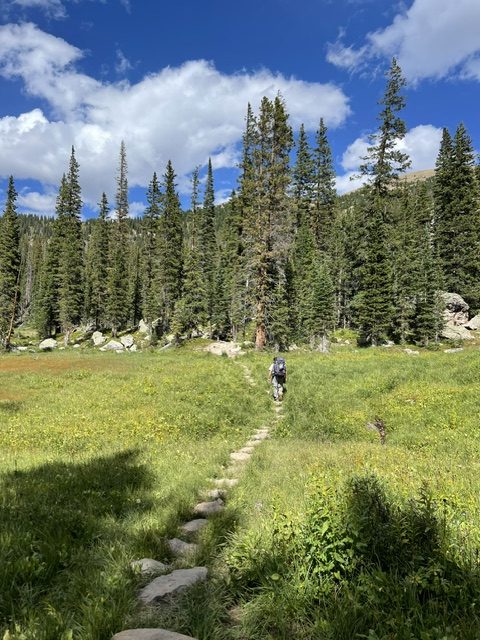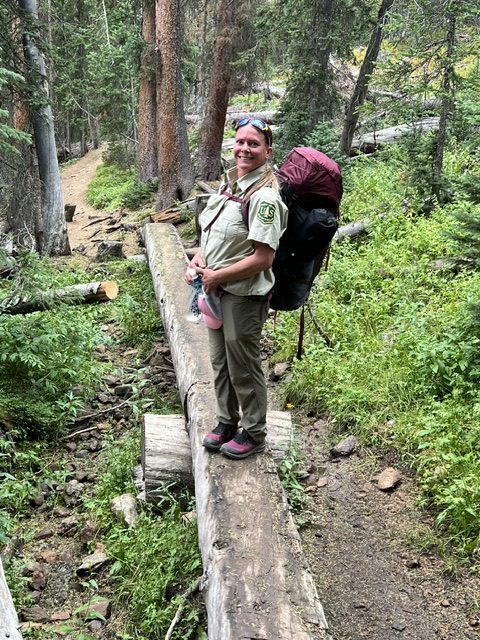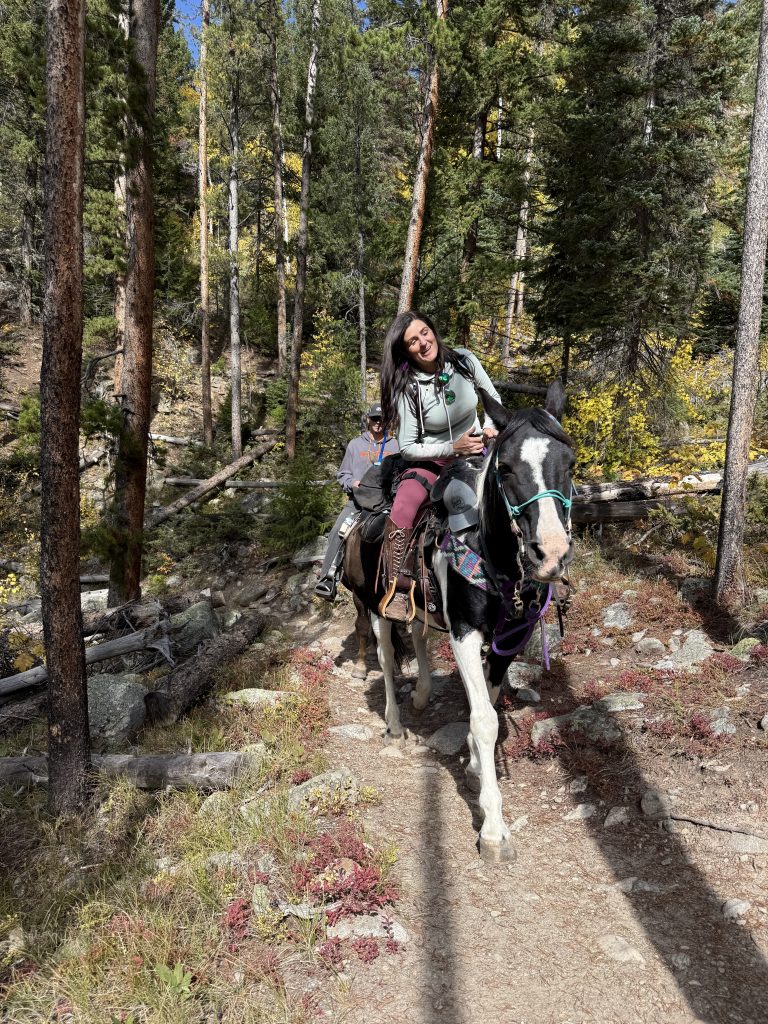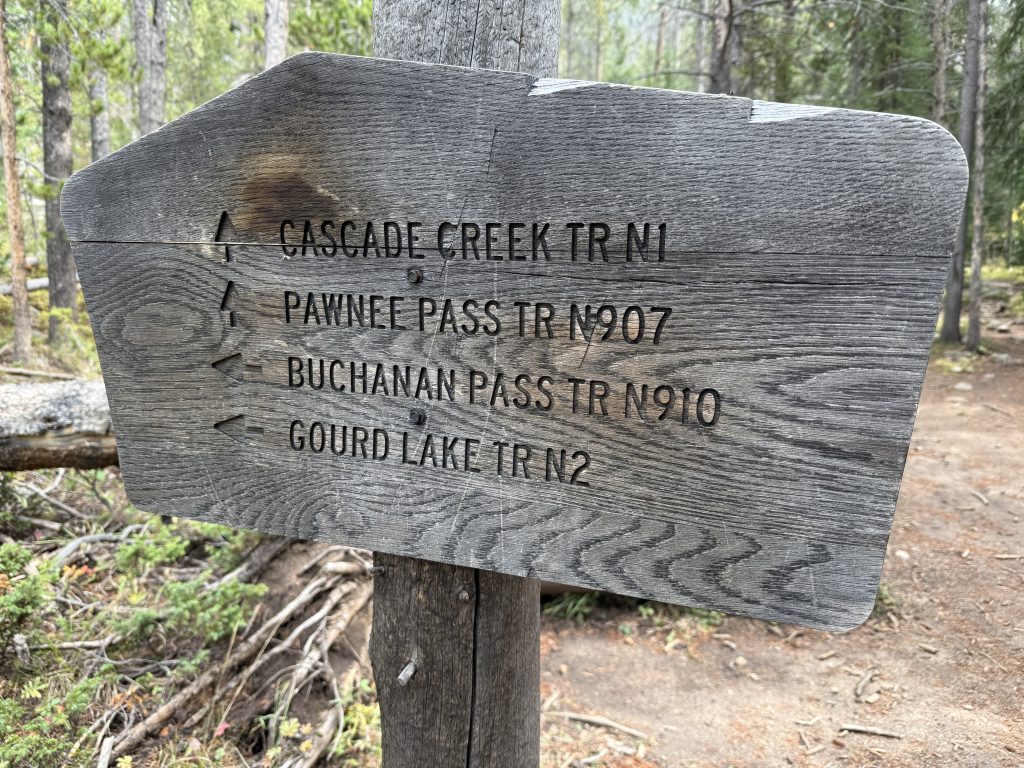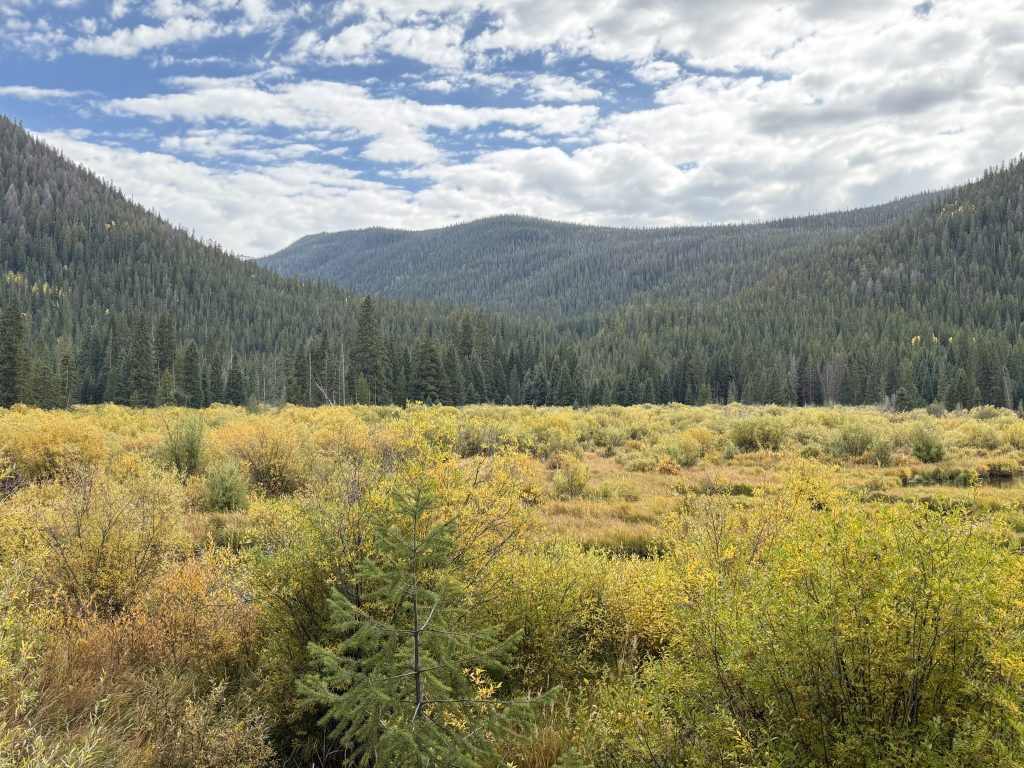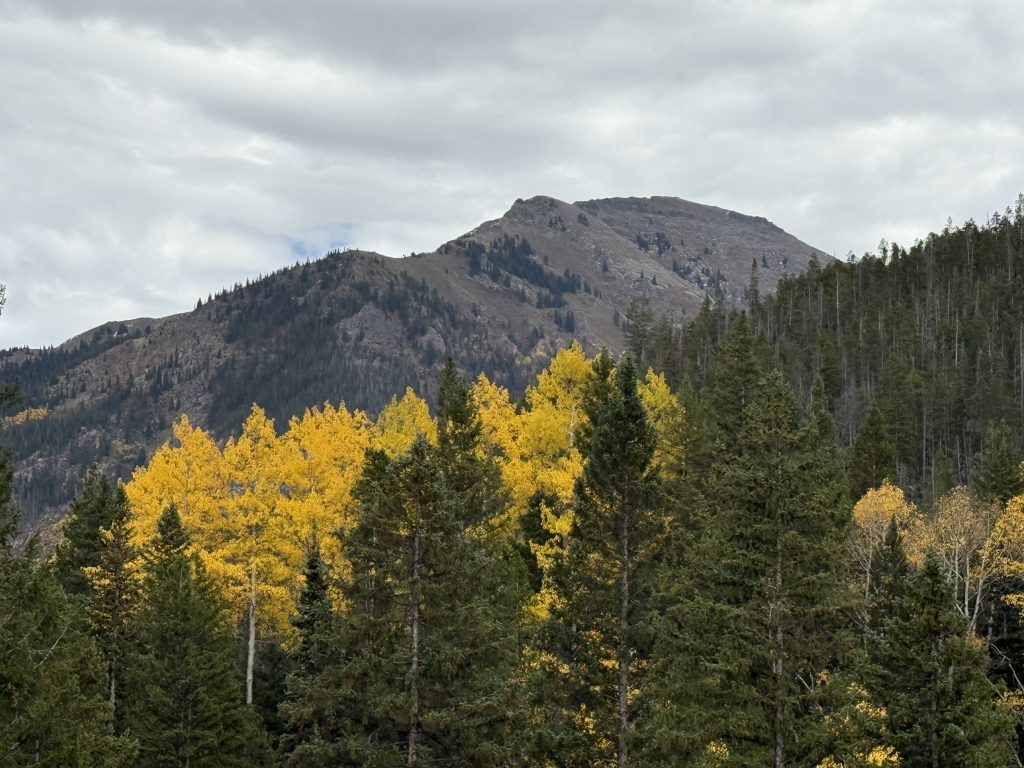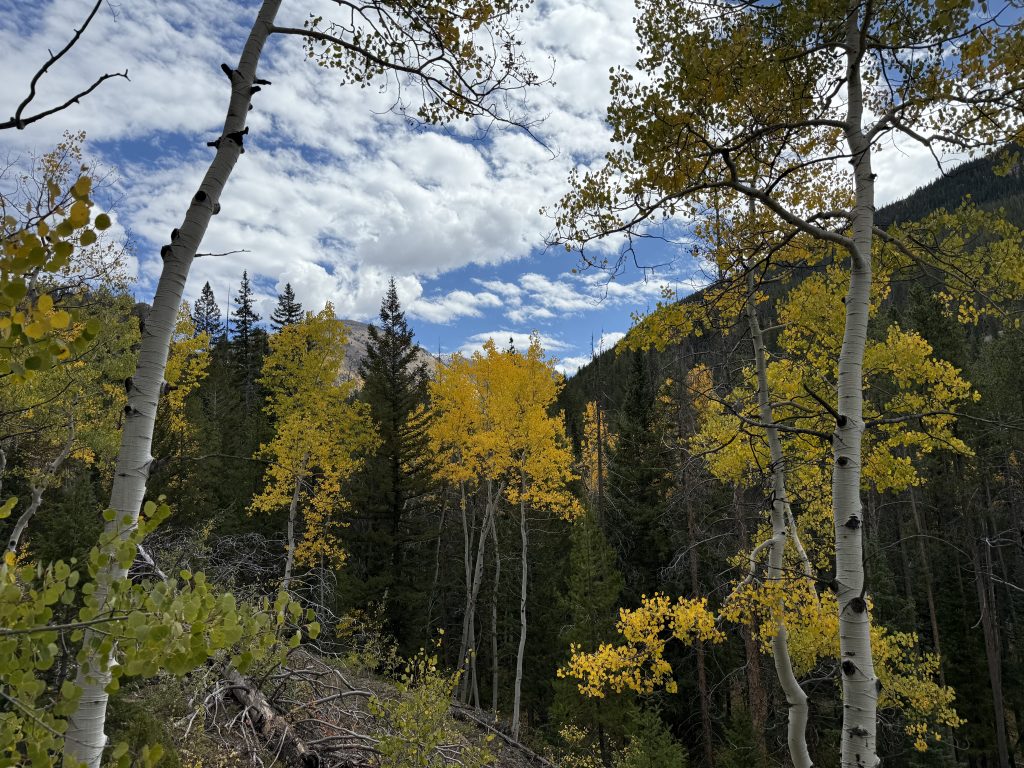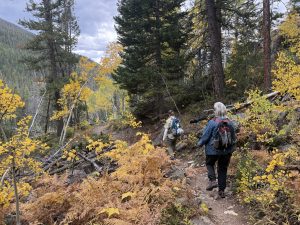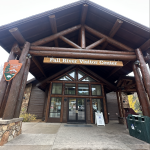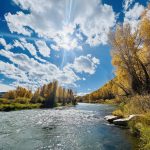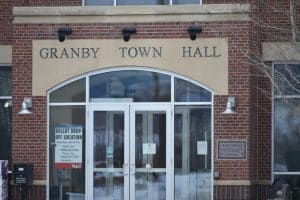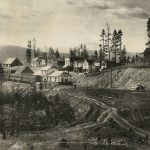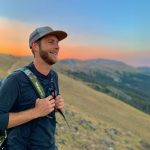Persevering through staff cuts, Grand County forests turn to volunteer rangers
With no wilderness rangers hired this summer, the Sulphur Ranger District relied on partners to keep public lands safe and clean
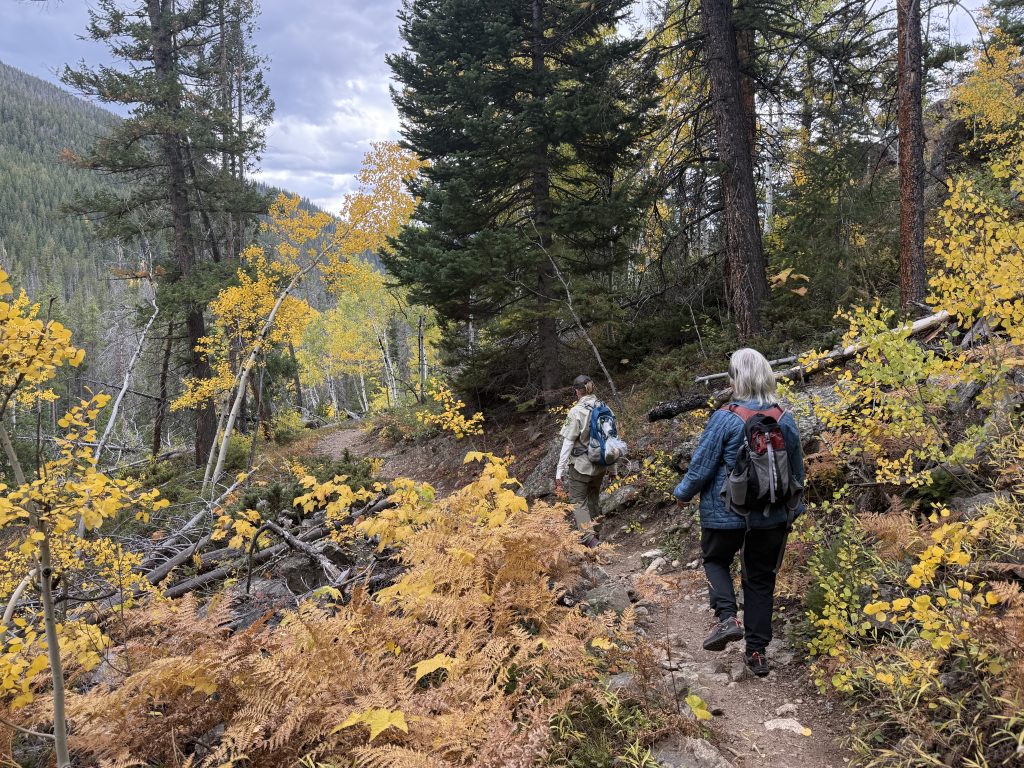
Sean McAlindin/Sky-Hi News
Lara Kurtak and Eric Russell were patrolling campsites at Crater Lake on their first volunteer mission, when the smell of smoke stopped them in their tracks.
Upon following the scent deeper into the backcountry, they discovered what they called “a raging fire” built by a group of six campers, who said they were oblivious to the permanent campfire ban in place at Crater Lake. With water bottles in hand, Kurtak and Russell rushed to extinguish the flames. That experience left their hearts racing — but the work was just beginning.
After tracking dozens of lake visitors that afternoon, putting out more illegal fires and wrangling unleashed dogs, they realized just how badly their presence as volunteer rangers was needed during the busiest time of year for camping and hiking in the Indian Peaks Wilderness.
The U.S. Forest Service’s Sulphur Ranger District covers over 442,000 acres in Grand County and is home to some of Colorado’s most well-loved and fragile public lands. Each summer brings swaths of hikers and campers to these areas, and 2025 was no exception.
The land remains open and accessible year-round, but the forest service — both in Grand County and nationwide — has had limited capacity to monitor and regulate visitor activities due to a wave of federal layoffs, voluntary resignations and early retirements this year.
Staffing cuts have gutted the Grand County branch, according to former U.S. Forest Service Lead Wilderness Manager Andy Borek. Vacant management positions meant that the Sulphur Range District was unable to hire seasonal forest service rangers this summer. In response, partner organizations such as Grand County Wilderness Group stepped in to preserve vulnerable wilderness areas.
Borek, now president of the Grand County Wilderness Group, worked closely with the Forest Service to launch the wilderness group’s first backcountry wilderness ranger summer program.
“I was a ranger working out of the Granby office for 10 years,” Borek said. “I could not watch all my efforts just crumble.”
The group this summer consisted of 16 volunteer rangers tasked with monitoring trailhead activity and educating visitors on leave no trace principles in popular recreation areas. Volunteers assisted at trailheads including Junco Lake and Crater Lake in the Indian Peaks Wilderness and nearby Monarch Lake, which serves as an entry portal to Indian Peaks. Members of the Headwaters Trails Alliance collaborated with the wilderness group by taking rotating shifts at cabins in Monarch Lake and Junco Lake.
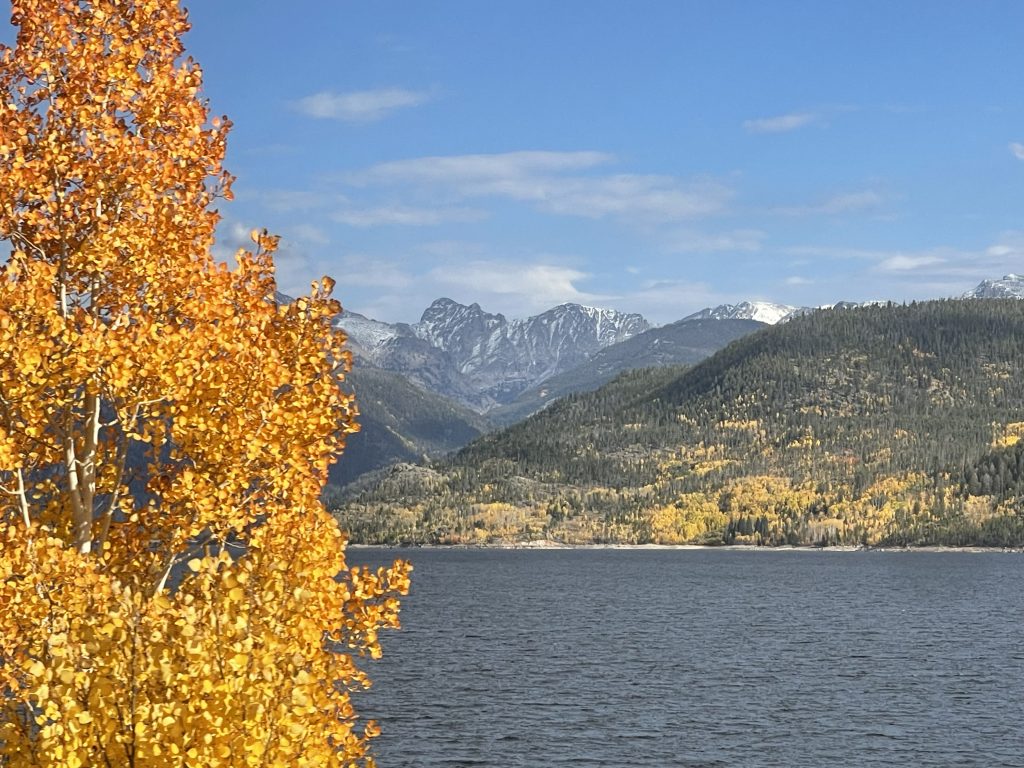
Because volunteer patrollers do not have law enforcement authority, their role focuses on education and prevention, Borek said. While stationed at backcountry sites, they engage with visitors about safe and responsible recreation, addressing issues such as illegal campfires, off-leash dogs or campsites too close to water. Each interaction is then logged, and the data is shared with the forest service.
“The wilderness group is not a substitute for the federal agency, but it is a viable alternative right now,” Borek said.
Data collected by volunteers this summer painted an optimistic future for the program. Patrollers logged more than 1,100 volunteer hours between the Junco and Monarch cabins, engaging with visitors over 14,000 times. At the Monarch trailhead alone, nearly 35,000 visitors signed in during the season, according to the data.
Patrollers also maintained a presence for 12 of the 15 weekends in the season at Crater Lake, which Borek said has exploded in popularity due to apps like AllTrails that spotlight highly-rated trails. Without ranger presence, he said, that land could face serious damage.
“During fire bans, we found numerous illegal campfires, and campfires are never allowed at Crater Lake,” he said. “I think about what could have happened if we hadn’t had a presence.”

Volunteers step up to maintain popular areas
Grand County natives Lara Kurtak and Eric Russell were part of the summer volunteer team, completing two patrol trips at Crater Lake and one at Columbine Lake. The job was not easy, she said, but the experience was worthwhile.
“Columbine Lake… holy moly,” Kurtak stated in an email. “What a circus!”
One weekend, while Grand County was under a Stage 2 fire ban, the pair extinguished four active campfires on their drive to the Junco trailhead. Each fire was started by visitors who assumed the activity was allowed because previous users had built a fire ring onsite.
“I will admit it was a little intense, and most people cooperated, but there was definitely some push back,” she stated. “We felt positive and confident in all of our encounters.”
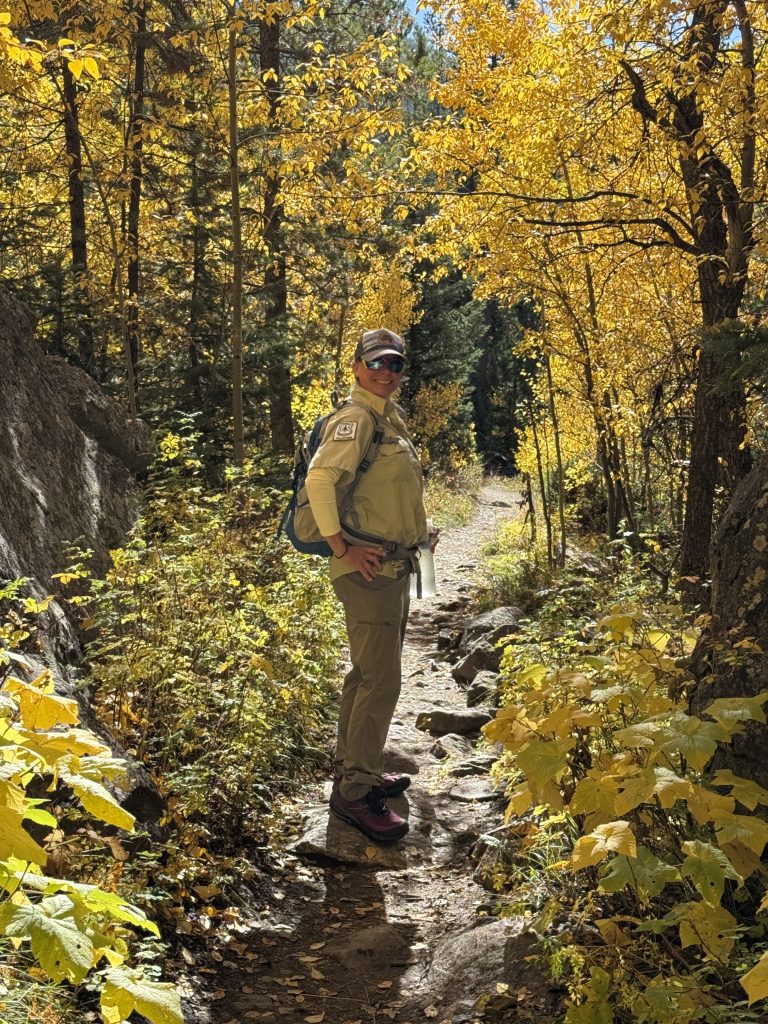
Her first experience as a volunteer patroller left Kurtak feeling grateful for the opportunity to give back to public lands and to Grand County, where she grew up.
“I really think just having a presence is the most valuable part of the Volunteer Wilderness Patrol,” she stated. “We must protect our lands and wilderness because no one else is going to do it… I am proud to be part of this community and put my volunteer time in for the greater good.”
Borek said the forest service has been “very supportive” of the volunteer program, which mainly targets the Indian Peaks Wilderness for now. If volunteer numbers continue to grow, he hopes to expand patroller presence to other wilderness areas such as the Never Summer, Byers Peak and other spots in Grand County.
“This is a great partnership, and it only works through the support of the forest service,” he said. “Through the backcountry ranger program, we can get some young blood in. If there’s ever a time for people to step up, it’s right now. The need has never been greater.”
Each volunteer wilderness ranger must complete at least two patrols a year, including one overnight trip. The program welcomes participants of all experience levels, Borek said, and training includes instructional videos followed by a full day of in-person field instruction covering safety, wilderness ethics and visitor engagement.
Interested volunteers can visit the program’s website for more information.
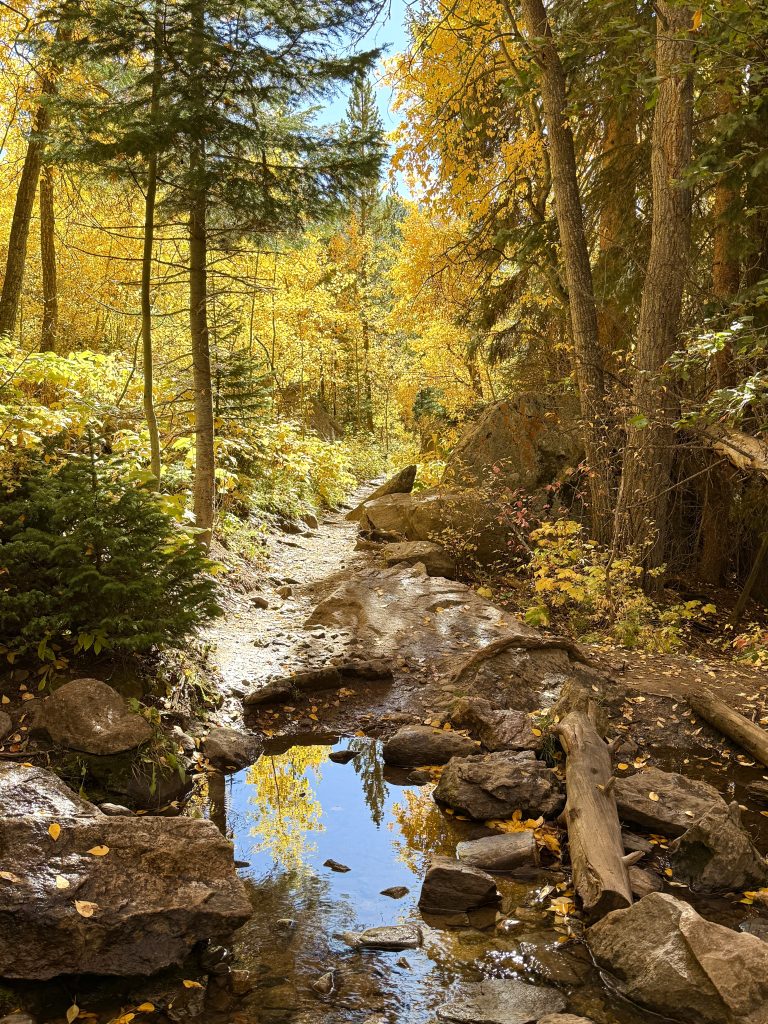

Support Local Journalism

Support Local Journalism
The Sky-Hi News strives to deliver powerful stories that spark emotion and focus on the place we live.
Over the past year, contributions from readers like you helped to fund some of our most important reporting, including coverage of the East Troublesome Fire.
If you value local journalism, consider making a contribution to our newsroom in support of the work we do.

